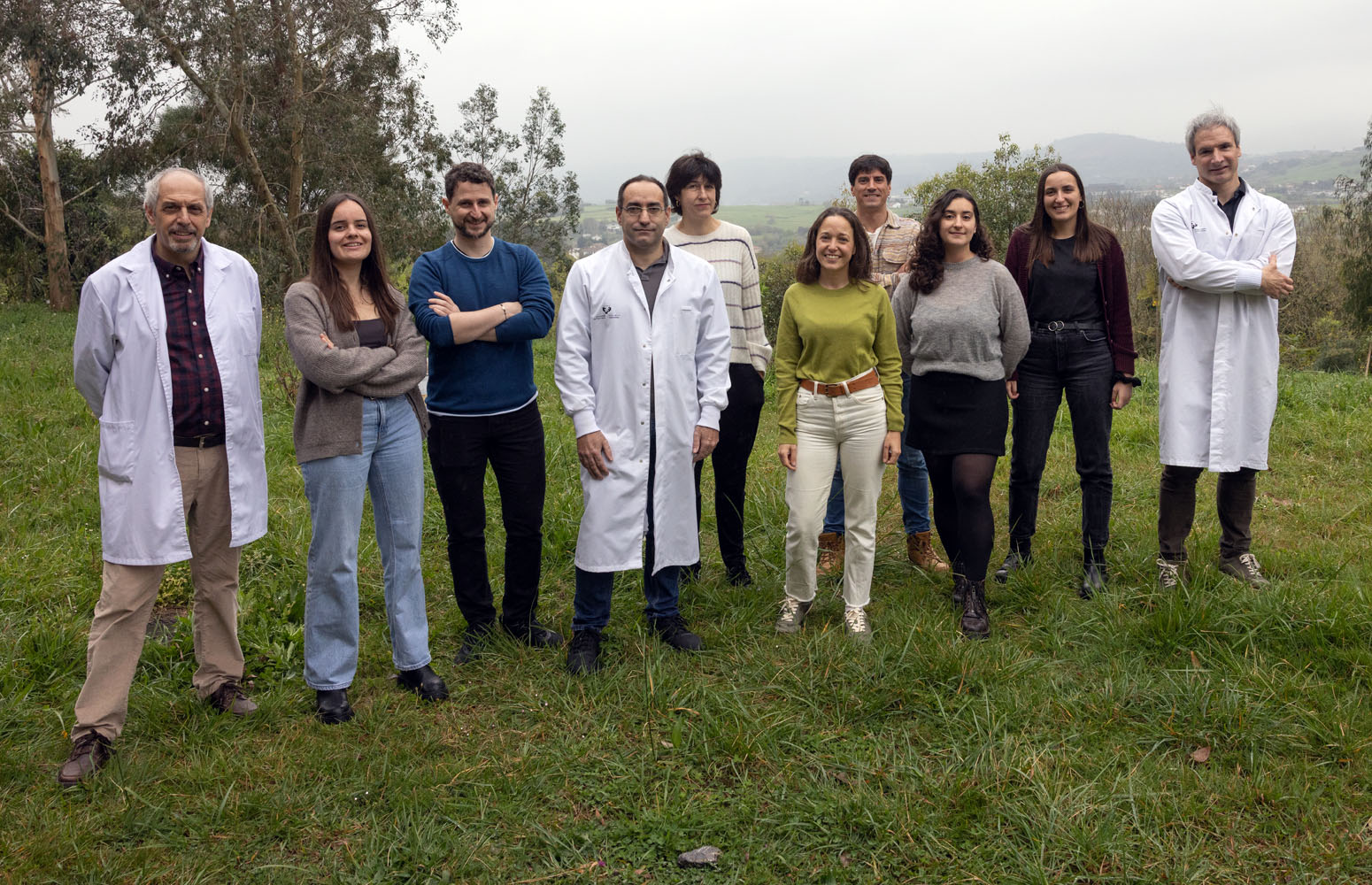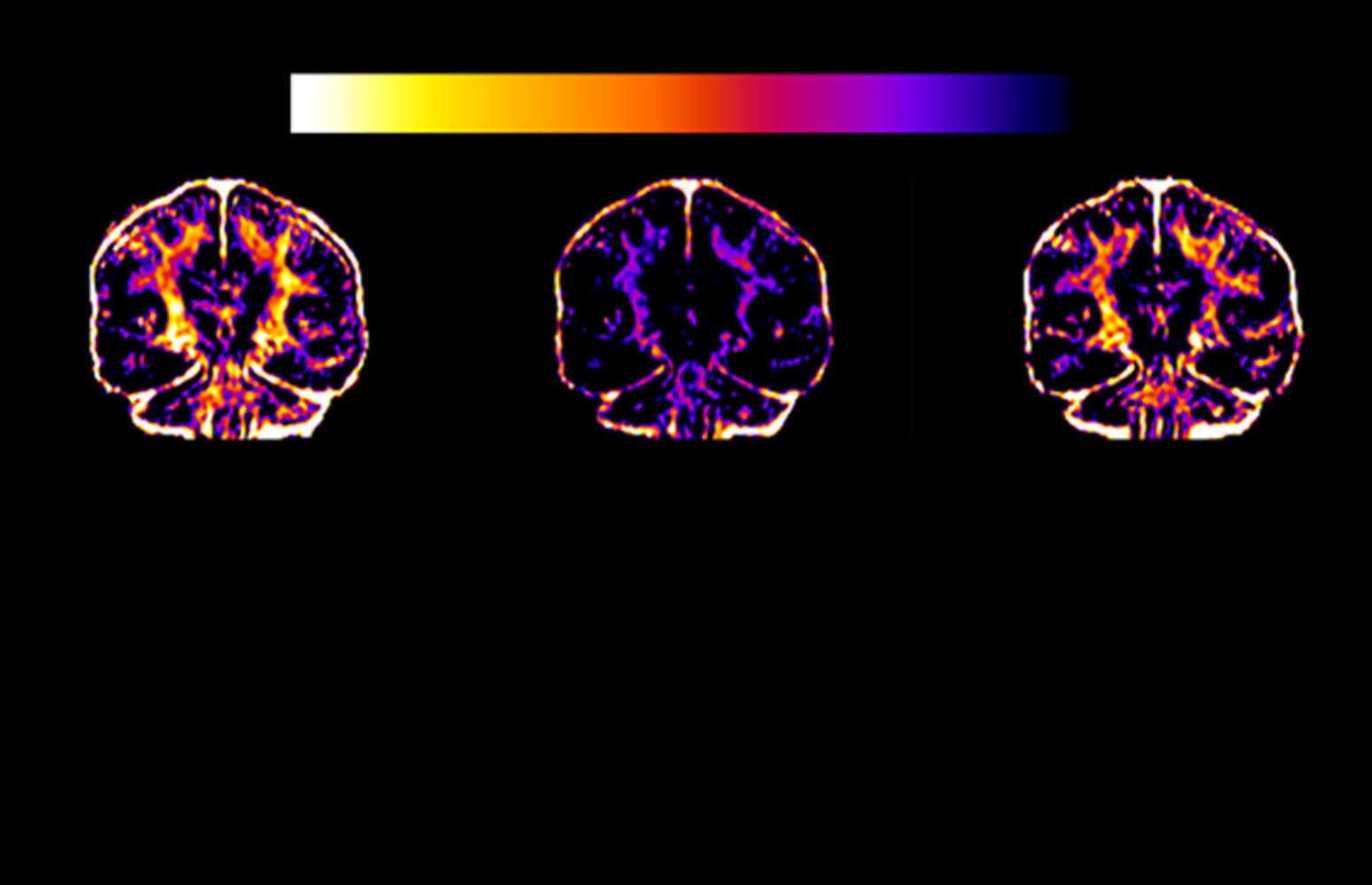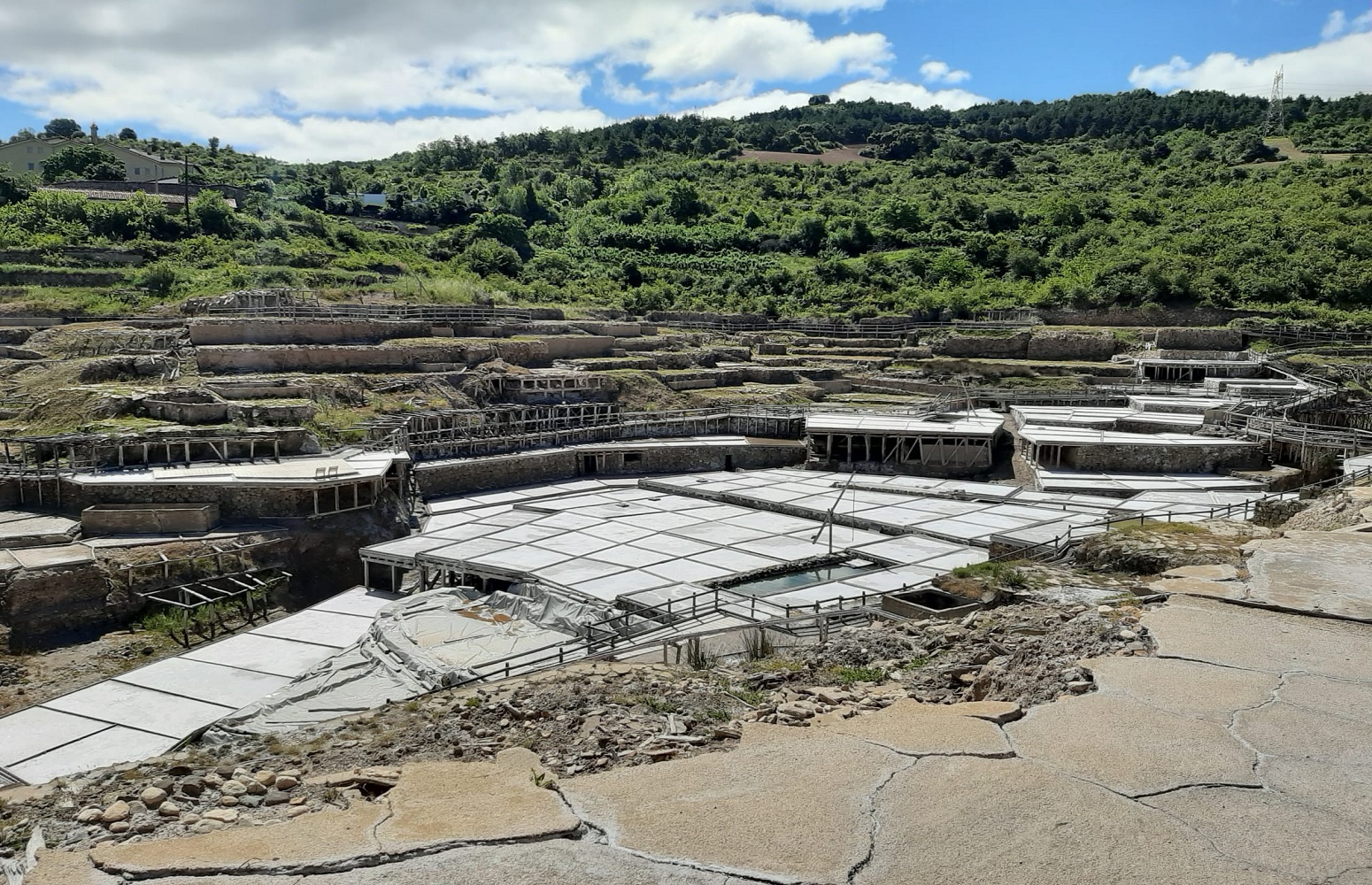An agreement has recently been concluded between the UPV/EHU’s Stream Ecology research group, the Ecobiop group of the UPPA [Université de Pau et des Pays de l’Adour] and the INRAE [L’institut national de recherche pour l’agriculture, l’alimentation et l’environnement], and the Freshwater group of the University of Berkeley, to set up an international partner laboratory: LIA MacLife. They will be collaborating on the study of the impact of climate change on freshwater ecosystems. The UPV/EHU leaders of the project, Prof Arturo Elosegi-Irurtia and lecturer Aitor Larrañaga-Arrizabalaga, discuss the opportunities that this agreement will bring to their own research.
-

Cells very similar to neurons obtained from human dental stem cells
-

The brain resorts to myelin when other brain nutrients are depleted
-

System for calculating the impacts of emissions by large European industrial plants is published
-

Most goals in football result from first touch shots
-

Añana Saltern microorganisms help to clarify the groundwater flow pattern
Researchers from the Dept. of Plant Biology and Ecology of the UPV/EHU-University of the Basque Country
Arturo Elosegi and Aitor Larrañaga: «Here we have exceptional databases, which we can use to obtain interesting results about climate change»
- Interview
First publication date: 05/07/2021

How did the agreement to set up this laboratory between the three research groups come about?
International partner laboratories such as the LIA MacLife are a French concept: the French government encourages and runs such initiatives. These are not physical spaces, but research units. Normally, organisations from two countries join forces; in our case, however, there are three of us. Moreover, we are one of the few laboratories to have a US partner, a strategic objective for France.
The initiative originated in the UPPA's Ecobiop group; they proposed that we, the Stream Ecology group, and the Freshwater group should form the laboratory, as they felt that our work would complement the work they do. As far as our group is concerned, we have also worked together with the Ecobiop group previously, as the UPPA and the UPV/EHU are partner universities; we have, for example, co-supervised several theses.
Now that the agreement has been signed, we are working on the administrative formalities. A number of post-doctoral researchers are expected to start work, and these people have already been selected.
What opportunities will you get from being part of this laboratory?
We will have the opportunity to collaborate with people who specialise in areas that we have not developed so much in our group. For example, we do not go as deeply into fish biology, but it is one of the main branches of study of the UPPA group, who study their behaviour and ecology, focusing on populations. The California group focuses on communities, and our group is regarded as one that focuses on the functioning of communities and ecosystems. So, because our work is complementary, anything that we do in collaboration will enable us to cover all these areas.
«We will have the opportunity to work in areas that we have not developed so much in our group»
This collaboration also opens up the doors for all of us to use each other's facilities and infrastructure. It is usually possible to use any scientific facility, because they are mostly public ones, but the waiting lists tend to be very long. However, as preferred partners, it will be more straightforward for us. In our group, for example, we have a number of artificial streams inside the lab. At Berkeley, they have the same as what we have, but multiplied by 100, and in nature: these are artificial streams, but on a different scale, about 50 metres long. France, on the other hand, has an archipelago, Kerguelen in the Indian Ocean near the Antarctic, where hardly anyone lives, and which is used as a natural laboratory. We would like to do some work there.
On a separate matter, participating in such large groups gives rise to new ideas. The key to designing research work is to have interesting ideas, and working collaboratively will force us to think about what we can do together, so we hope fruitful ideas and discussions will emerge in the design phase of the experiments, and that they can then be implemented properly.
Let us highlight the importance of finding out about the impact that climate change will have on freshwater ecosystems. You don't hear much spoken about these two issues together, climate change and freshwater ecosystems.
That is true, but it is, in fact, very important. We know that the climate is changing, we measure it, and we can predict pretty well what that change is going to look like. But that is one thing, and the impact that change will bring about is quite another. It’s not at all straightforward. For example, if rainfall diminishes, we know that river flows will also diminish as a result. But how far these flows will diminish does not depend entirely on rainfall; the types of forest in the valley, or whether the rainfall is concentrated or spread over time also come into play. And the fact that flows will diminish means that our rivers and streams will become hitherto unknown physical environments, and their communities will be under huge stress, because they have evolved in one way and now, all of a sudden, their conditions have changed.
«Changes taking place in freshwater ecosystems will also have significant implications for human beings»
Changes taking place in freshwater ecosystems will also have significant implications for human beings. Firstly, there is the question of hydroelectricity, a very important resource, where the change in flows will have consequences. Secondly, we use a lot of water from rivers, through reservoirs and so on. It remains to be seen how much water will remain and what its quality will be like.
At the research level, is it a widely-studied topic? What does measuring climate change involve?
Yes, it is. There are many people across the world from many different areas or fields and who are conducting research on this topic: the effect of extreme events such as floods and droughts, for example. The impact of temperature change was studied extensively some time ago, although nowadays this issue has lost some of its momentum.
The UPPA partners study the strategies of different species, and try to predict the response of specific species to a change in rainfall patterns. The amount of precipitation has not changed here, but it is raining on fewer days, and they are studying how the reproduction of certain species is changing in this new situation. We try to anticipate such things, and to understand the consequences they may have, and then try to improve management.
It is also true that freshwater ecosystems bring together the impacts of different aspects, and that they are very reactive. So it is often difficult to isolate long-term trends such as climate change. And that is precisely why we will be using the large datasets that we have collected in the Basque Autonomous Community.
LIA MacLife has another nice feature: we cover quite a broad climatic range. Ecobiop and our group are quite close to each other geographically; they are located in Senpere [Saint-Pée-sur-Nivelle in the continental Basque province of Lapurdi]. But the hydrology of the rivers there and here is quite different, as our rivers are much more torrential and turbid, due to the fact that they are much shorter and steeper. And in the same way, fish in each location behave differently; they have a different philosophy of life from a hydrological point of view. Subjected to the same conditions, they respond in totally different ways.
Also, in our surroundings, within a very short distance, we have both the Atlantic and the Mediterranean climates. And climate change will affect the Atlantic and the Mediterranean sides very differently. California also has great diversity from the Sierra Nevada: mountains over 4,000 metres high right down to sea level.
What will you be contributing?
As we have already mentioned, the first step is to start analysing the databases we already have. We have huge databases, some covering the longest time series, or at least the most geographically detailed ones, on the state of the rivers. In Gipuzkoa, especially, where the change that has taken place over the last 30 years in the quality of the water, invertebrates, fish... in everything is recorded. There are very few places in the world with all that information, and this new partnership will allow us to work with it.
In fact, we are seeing more and more work on datasets for climate change research; it is a topic that is gaining momentum. And the resolution of the data we have here is exceptional. Then, potentially, we will be able to get some interesting results on climate change.

